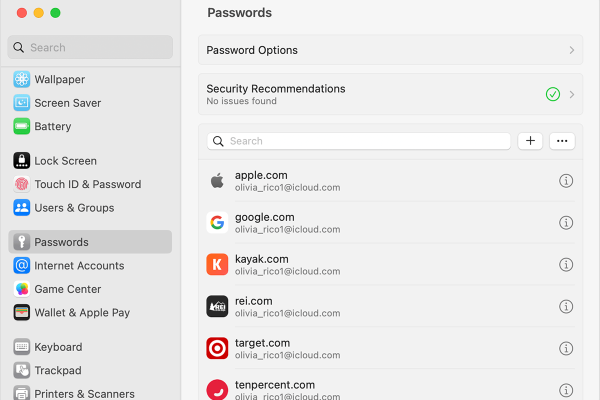The terms software engineers and computer science engineers are used interchangeably in our daily conversations. But they are not the same. The subjects vary from each other, though they are interconnected. This interconnectivity is the reason for both the terms getting used in discussions by a common person. If you are looking for a career in the software industry and wondering which stream to choose, keep reading. Today, let’s try to know more about software engineering and computer science and the difference between the two.
What is Computer Science?
The word ‘Computer’ with science shows it is a stream involving the mechanisms of the computer. The computer science stream involves the design of electronic components involved in the making of the unit called a computer. It also involves the functional aspect of the computer, that is, understanding the computational processes. It involves understanding how data is processed, understanding the networks, database arrangement, security, memory management, artificial intelligence, etc.
It is a vast area of science of computer programming. The field lets you explore the computers working via algorithms that process data as defined in the programs.
What is Software Engineering?
Computers can solve problems in a matter of seconds. They can retrieve, manipulate the data and process the operations to give results. Organisations cannot directly use computers across industries. Every industry conducts as per the requirements of its business. So, computers need to be programmed to work as per the industry needs. So, designing the process to make effective usage of the computers for business falls under software engineering. Here, the focus is on understanding the business, collating the requirements, generating required documents followed by the design, coding, and testing for the same on the computers. The software developed for the industry using computers is known as application. (Provigil) Building applications require a huge team of professionals, including business analysts, developers, database administrators, testers, and technical writers. Job aspirants can take up software engineering courses available at deemed universities.
Having understood the definitions and meanings of Software Engineering and Computer Science, let’s take a look at the differences between them.
The scope of the subject
Software engineering is ideal for candidates who would like to learn the overall life cycle of software development from the time of requirements collection, building, and delivery. Here the focus is on using the computers and applying the principles to build, design, and implement programs to get desired results. Software engineers design the application as planned to utilize the capabilities of the computer.
Computer science is right for candidates interested in the actual functioning of the computer behind the screen. The focus is on computing, analysis, and storage inside the system. This includes artificial intelligence, machine learning, graphics, and security. Computer science emphasizes the theories behind computer computations and data systems, followed by how the software is designed.
In Project Management
Candidates usually take up project management in undergraduate and graduate programs in the Software engineering stream.
Project management is inclusive of the computer science curriculum.
What does the course include?
Software Engineering includes learning programming languages and computing principles. The focus is to learn real-time business engineering concepts.
The computer science stream delves deeper to data storage, memory management, data processing on computing devices. The focus is on learning engineering concepts concerning building frameworks for applications to run. The course involves mathematical engineering applicable to computing systems, engineering principles, and software engineering concepts.
Coverage Area
Software Engineering applies to all the areas from retail, manufacturing, banking to spaceships, though the specifics may vary based on the industry. Software engineers work with software design as defined in SDLC. Here they need the inputs from the computer science professional to provide analysis and design the framework to be in harmony with the computer’s hardware.
The computer science area is evolving with cloud computing and AI technology. A computer science graduate can create programs compatible with computer hardware and software in line with the application’s design.
Career opportunities
Understanding the business is crucial to deliver applications. So, software engineering is a specialization that is in demand in all industries from retail, to manufacturing, to the BFSI sector.
Computer Science graduates are in demand as they drive the software engineering process with their AI and cloud computing technologies.
A computer science graduate can easily do software engineering. As they would have studied software engineering as a subject in the curriculum, it’s challenging for software engineering professionals to work in computer science.
Both streams have challenges. Few are listed below.
Challenges of Software Engineering
- Increasing demand by the market for quick delivery
- To interconnect diversified software systems
- Risk for software failure in security and safety-critical areas such as aviation, space, nuclear power plants
Challenges of Computer Science
- The growing stress on the internet infrastructure to match the customer demands.
- Keep up with customer usage for mobile apps emphasizing cloud services and mobile platforms.
- An increasing number of objects connecting to the internet.
- Data leaks and sensitive information leakage are huge challenges computer science professionals are facing right now.
What are the best practices?
For Software Engineering
- Software engineering professionals follow a process to develop an application to benefit the clients along with the employer.
- Create software products that are flexible, scalable, and also meet service level agreements
- They maintain high standards of integrity in their professional approach
- Emphasis is on ethical practices for software development and maintenance
For Computer Science
- Focus is on incremental changes
- Looks for ways to optimize the software if it is working as expected
- Detailed design documents with a clear statement of the purpose
Is Software Engineering a better choice or Computer Science?
Both the streams are equally interesting and offer vast job opportunities. Software Engineering courses can be opted by anyone interested in computers. They can learn to program, test, and know about the software life cycle. All it needs is interest in programming and logical thinking. Computer science is for candidates interested in decoding the flow of processes behind the screen in the database, memory management, security, and AI.
Conclusion
Computer science requires full-time studies as it involves mathematics, circuits, networks, storage, security, and software engineering. But software engineering can be added as an additional certificate by taking up a course. Interested candidates can choose to do a software engineering course online or offline. There are quite a few e-learning courses available to pursue. The course would add value to the resume while applying for internships or jobs. Data science being in-demand, software engineering in data science would be a good choice for post-graduation. Candidates can explore further and try to get hands-on experience in digital platforms. Participations in college or inter-college contests would be good to start with. Certificates obtained will add value to the resume while applying for jobs or internships. The exposure you get from the competitions and practical projects would boost your self-confidence while facing the interview panel.











